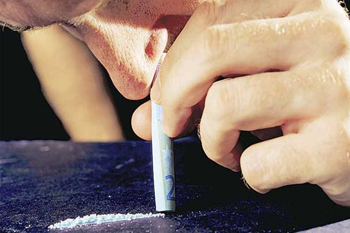New Delhi, Jul 17: Drug trafficking in India is on a new 'high' with anti-narcotics agencies having detected the crime being perpetrated through the cryptic 'darknet' and the clandestine and unregulated currency Bitcoin.

"For the first time, we have detected drug traffickers using the darknet and Bitcoin for running the illegal drug racket in India. I can tell you that our investigations have shown that some of these operatives are based in the country. We are probing them," NCB Director General R R Bhatnagar said.
While 'darknet' is a clandestine internet network which can only be accessed with specific software, configurations and authorisation and is difficult to track by the usual communications protocols and ports, Bitcoin is referred to as a cryptocurrency that allows consumers to make electronic transactions by skipping the legal banking channels.
The NCB boss said the two syndicates interdicted by them were prima facie seen indulging in trafficking of party drugs.
The usage of such ultra-secret measures over the internet in drug crimes is worrying but we are enhancing our capabilities to effectively and timely detect these instances, he said.
Bhatnagar, while talking about the drug trafficking scenario in the country, said the cross-border availability of heroin has decreased.
"Our estimate is that due to effective clampdown by the agencies tasked to check the drugs menace, there has been a 30 per cent decline in trafficking in Punjab," the DG said.
At a review meeting of the agency recently, Bhatnagar had informed the Union Home Ministry that drug addicts in Punjab were gradually getting attracted to medicine-based concoctions following the clampdown on peddling of traditional narcotic drugs.
The official data for 2015 show that Punjab accounted for the maximum seizures of opium and heroin nationwide.
The latest trends suggest that synthetic drugs are now replacing the natural and semi-synthetic products that have been abused for several decades.
A report prepared by NCB said, "Despite strict controls and monitoring put in place for certain pharmaceutical products, there is evidence indicating their diversion for abuse."
He said it was worrying the law enforcement agencies which were taking steps to check such drug abuse.
Bhatnagar said the NCB, in coordination with state police and border guarding forces like BSF and SSB, has seized over 2 lakh bottles of codeine-based (a sleep-inducing and analgesic drug derived from morphine) syrup, like the popular brand Phensedyl, from the eastern parts of the country in the first six months of this year.
The NCB report said in 2015, 1,687 kg of opium, 1,416 kg of heroin, 94,403 kg of ganja, 3,349 kg of hashish, 113 kg of cocaine, 827 kg of ephedrine or pseudoephedrine among others were seized by various agencies across the country.
"Illicit opium poppy cultivation spread over 5,000 acres was destroyed all over the country. This is about 60 per cent more than the comparative figures of the last few years," the DG said.






Comments
Add new comment